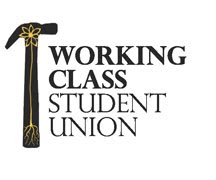I'm sure you get the feel for the article by now.
Perhaps this quote sums up my reaction:
"Few are playing sad cellos over the fate of such folk, especially since the collapse of the institutions they run has yielded untold financial pain."
The article says, "the cold hard math can be cruel."
Yes it can, so let's look at the bigger picture. This is not to say the Times has not written articles, columns and blogs on the dramatic economic downtown. For that bigger picture, however, I give you some other numbers--numbers, that in my opinion, warrant the Times' attention more so than nanny fees and pennies for personal trainers.
Via the Bureau of Labor Statistics: Approximately 598,000 jobs were lost in January alone. Approximately 3.6 million jobs were lost since the beginning of the recession in December 2007. BLS estimates the current unemployment rate at 7.6%.
Think about what that means. How that affects those workers without jobs, those workers' families. Not about an $8 frozen hot chocolate.
--Cassie, WCSU's Research & Communication Assistant
--Cassie, WCSU's Research & Communication Assistant



